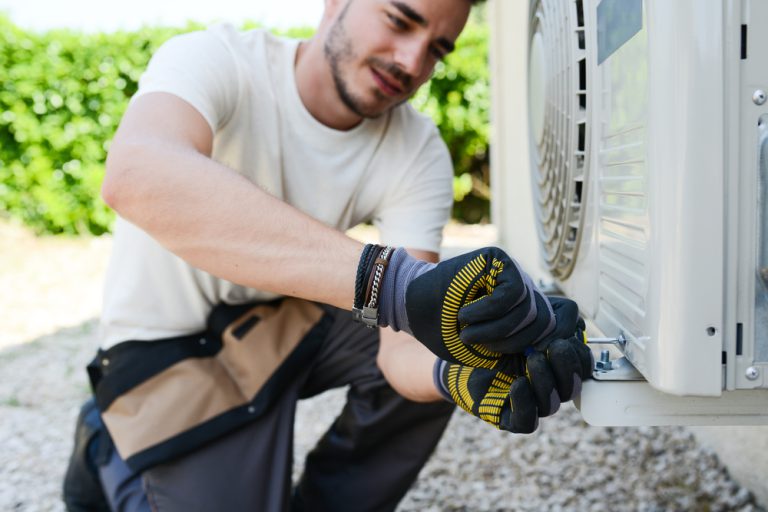
 Every RVer, experienced or new, knows that space is at a premium when it comes to your motorhome – and sometimes that’s not just on the inside! If you’ve ever tried to park a tall RV inside a garage or travel through low clearance areas frequently, you know what we mean.
Every RVer, experienced or new, knows that space is at a premium when it comes to your motorhome – and sometimes that’s not just on the inside! If you’ve ever tried to park a tall RV inside a garage or travel through low clearance areas frequently, you know what we mean.
Your RV air conditioner is an important part of your motorhome, keeping it cool during the warm or hot weather, ensuring everyone is comfortable inside after a long day of enjoying nature. But if the exterior is already tall, you don’t want an air conditioning unit making it even taller! That’s where a low profile RV air conditioner can help.
Low Profile RV AC
A low profile RV air conditioner is exactly what it sounds like – an air conditioning unit that works just like other RV air conditioners, but it’s a lower profile, giving you more space on the interior and exterior roof of your rig. This type of RV roof air conditioner is necessary for a motorhome that is tall. If you have an RV that is average or low height, you can purchase a regular profile roof mounted RV air conditioner, which may save some money.
Both low and regular profile RV air conditioners operate the same way, the choice between low and regular profile is more about exterior and interior roof space. A low profile RV air conditioner is also more streamlined, aerodynamic and lighter than regular profile systems, which can increase fuel efficiency and help maintain a good total RV weight.
Otherwise, a low profile RV air conditioner is similar to other types of air conditioning units. This includes ducted or non-ducted versions. The difference between the two is that a ducted style air conditioner wires directly into your RV and non-ducted unit does not. The ducted style air conditioner uses a thermostat on the wall, much like your heating and cooling unit at home, and a non-ducted system may use a remote for temperature adjustments. If you’re replacing an existing RV roof air conditioner, you should try to utilize the same style unit as previously used.
RV air conditioners offer a wide range of BTUs, which is a measure of energy. Essentially, the higher the BTU rating, the more powerful the air conditioner is. A 15,000 BTU RV air conditioner is the average, which can typically cool a space of 10 by 50 feet or less.
If you’re concerned about the RV air conditioner wattage use, here’s a great chart that can help determine watts required for start up and average wattage once running. RV air conditioner watts can range from 600 to 1,500 once the air conditioner is in use.
When shopping for a new unit, you’ll want to think about how often you’ll be using the air conditioning. Think you’ll be using your RV conditioner rarely? A 13,500 BTU RV air conditioner is a safe choice that can also save some money. But if you travel through warm climates often, or think you’ll just be using your air conditioning often, you’ll want to purchase one that has more than 13,500 BTUs, or consider using two units.
Many RVers who have larger motorhomes utilize two RV air conditioning units, to ensure the entire rig is well cooled. In that case, you could consider purchasing a 13,500 RV air conditioner for both the front and back of your motorhome, as the units will be a less expensive option than one with more BTUs.
An RV air conditioner with heat is also an option, which many RVers like so you get more bang for your buck. They are exactly what they sound: an air conditioner that can also provide heat for your motorhome. An RV air conditioner with heat is an expensive purchase, and can be over $600, however, it’s a great option for those who travel through a variety of clients.
There are a wide variety of brands of RV air conditioners available, but some of the most popular include:
Conclusion
Once you find the right brand for your unique RVing needs and ensure the style and BTUs fit your motorhome, you may also want to check out the reviews also. A good review from other RV owners can help to make sure you’re looking at RV air conditioner units that are perfect for you. You can simply Google terms like Advent RV air conditioner reviews and find reviews and opinions from other RV owners!
Now that you know everything there is to know when shopping for a low profile RV air conditioner, you’re one step closer to an even more comfortable RV experience!
This post may contain affiliate links.






